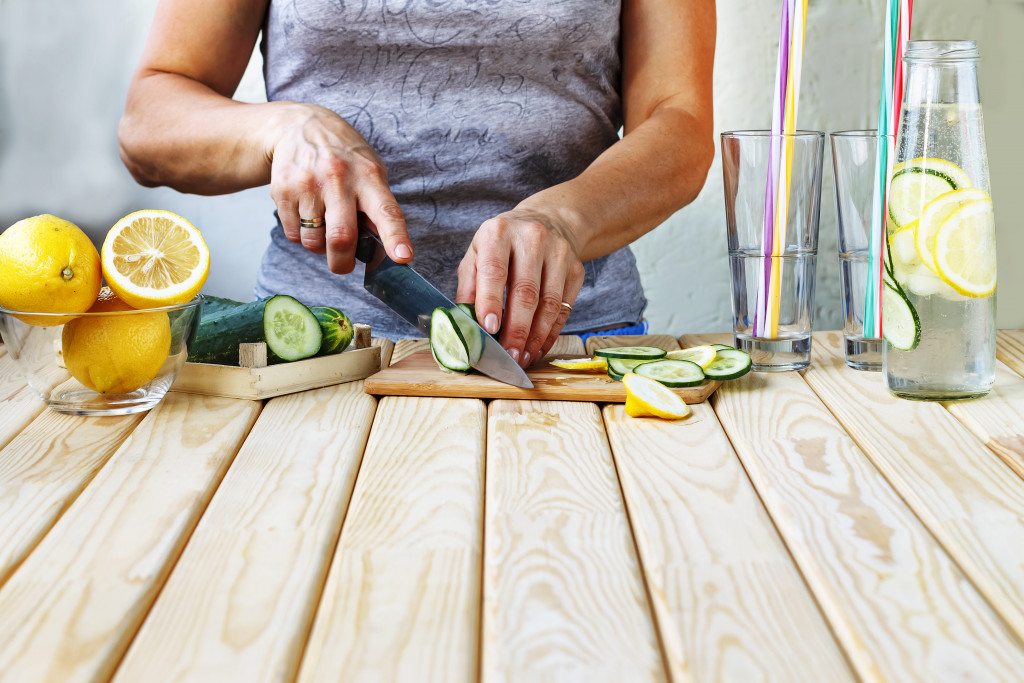Disclaimer: This website provides health information for educational purposes only and is not a substitute for professional medical advice, diagnosis, or treatment. Always seek the guidance of a qualified healthcare provider with any questions you may have.
All of us are probably making cleaning mistakes that are actually making our kitchens dirtier rather than cleaner. And most of the time, we think our kitchens are clean because it looks clean, when in fact, there are tons of germs and bacteria everywhere that we just can’t see.
The last place in your house that you want to be dirty is the kitchen. This is where you cook and eat, so naturally, having a dirty kitchen can put you at risk of ingesting disease-causing pathogens, among a lot of other nasty things that you probably don’t want to think about.
To make your kitchen spotless, here are the cleaning mistakes that you should stop making:
Using the same rag for everything
When you use the same rag for everything in the kitchen, you’re essentially just spreading germs from one place to another. Obviously, this is counterintuitive to your efforts of keeping a clean kitchen.
Instead of using the same rag for multiple spots in the kitchen, designate a separate microfiber towel for cleaning each area. For example, have one for the sink, one for the countertops, one for the table, and another for the spills you make on the floor.
Wiping down your refrigerator
Some types of bacteria can survive in cold temperatures, which means that your refrigerator may be teeming with bacteria despite looking clean. Not to mention the dirt from produce, juices from defrosting meat, and food residue from spills that can contain all sorts of germs that can make you sick.
You may think that wiping your refrigerator clean with a damp rag is good enough, but that can’t be farther from the truth. In fact, you may just be spreading the bacteria all around the refrigerator, especially when you use the same one for your freezer and your chiller.
To truly clean your refrigerator, you have to sanitize it. Here is how the Centers for Disease Control and Prevention (CDC) recommends sanitizing refrigerators.
Putting every kitchen tool in the dishwasher

It can be tempting to just toss everything in the dishwasher and leave it at that, but this cleaning habit might be doing more harm than good. When you put kitchen tools that have small nooks and crannies (grater, garlic presser, whisks, etc.) in the dishwasher, the food residue may stay on the tools’ small holes and corners. As a result, they can grow bacteria that can end up on your food the next time you use them.
Instead of washing these small kitchen tools in the dishwasher, it’s better to wash them by hand so that you can remove food residue thoroughly.
Using a dirty sponge
Your kitchen sponge is probably one of the dirtiest things in your house right now. Not convinced? Think of all the food, saliva, and dirt it touches every time you wash something. And even if your sponge is rinsed and wrung out, the bacteria can still linger on it long enough to spread to the next thing it touches. And when you leave your sponge damp all day and night, you’re also making it easier for bacteria to grow.
With that in mind, make it a point to replace your kitchen sponge regularly. The frequency with which you replace your sponge depends on the level of usage it endures, as well as the quality of the sponge you buy. But on average, it’s recommended that you replace your sponge every week.
Overloading the dishwasher
This cleaning technique may seem like you’re doing more in less time, but overloading your dishwasher can not only harm the appliance, but it can also lead to your dishes coming out still dirty. Moreover, putting heavily-soiled dishes in the dishwasher along with not-so-dirty ones will accomplish nothing but make everything dirty.
To avoid this problem, take the time to hand wash your dishes and cookware before putting them in the dishwasher. Apart from that, avoid overloading your dishwasher to ensure that everything gets cleaned properly.
Not cleaning your kitchen mop
Similar to using a dirty sponge, using a dirty kitchen mop defeats the purpose of cleaning. Sure, it can make your floor look cleaner, but you may also have spread the germs everywhere.
That said, clean your kitchen mop regularly, or preferably after every use, especially if you used it to mop up food or beverage spills from the floor. Don’t forget to use bleach to kill the germs that might be on it as well.
You may have a spotless kitchen, but if you keep making these cleaning mistakes, then your kitchen is only clean on the surface. To ensure that your kitchen is clean and germ-free, stop making these cleaning mistakes right away.




